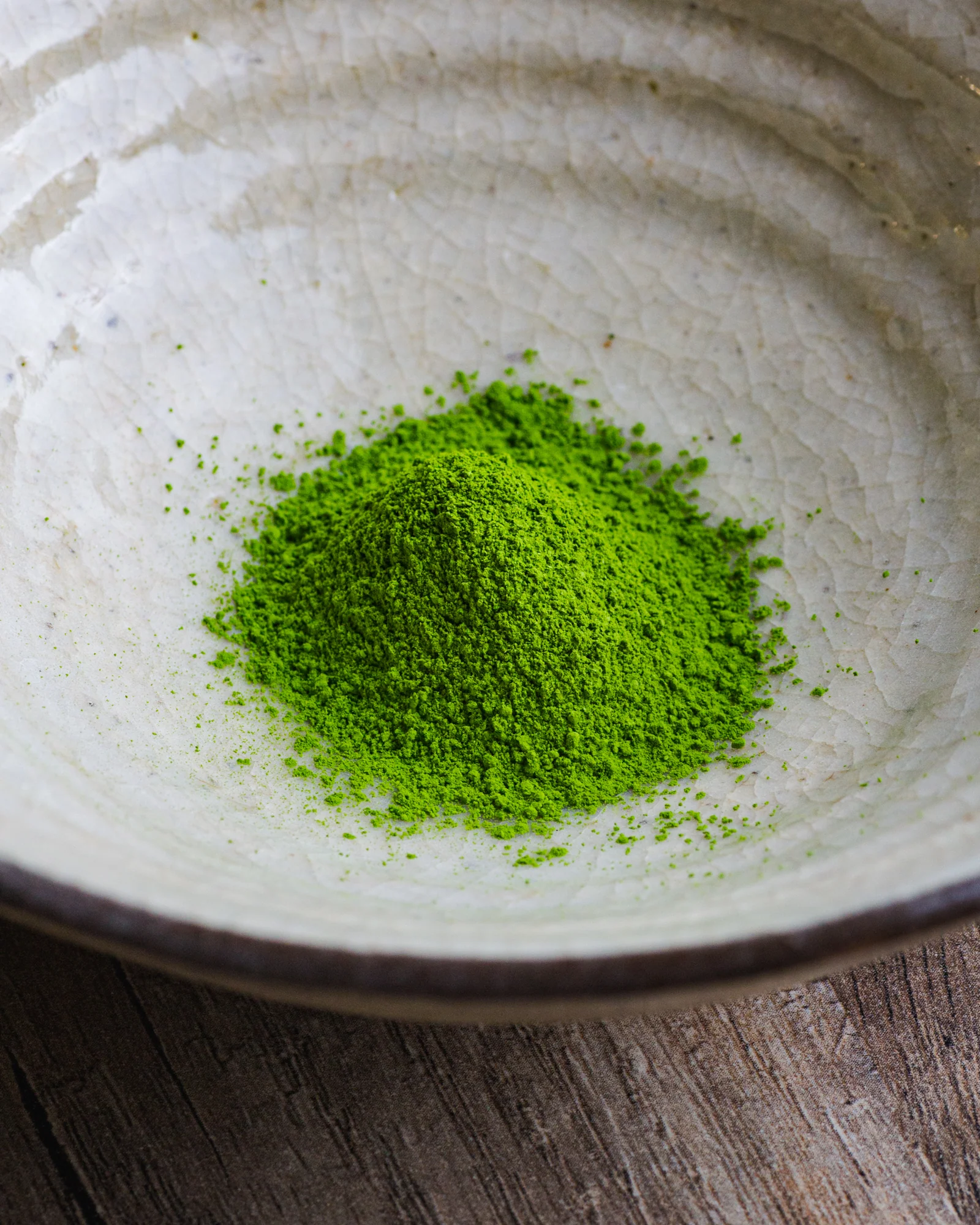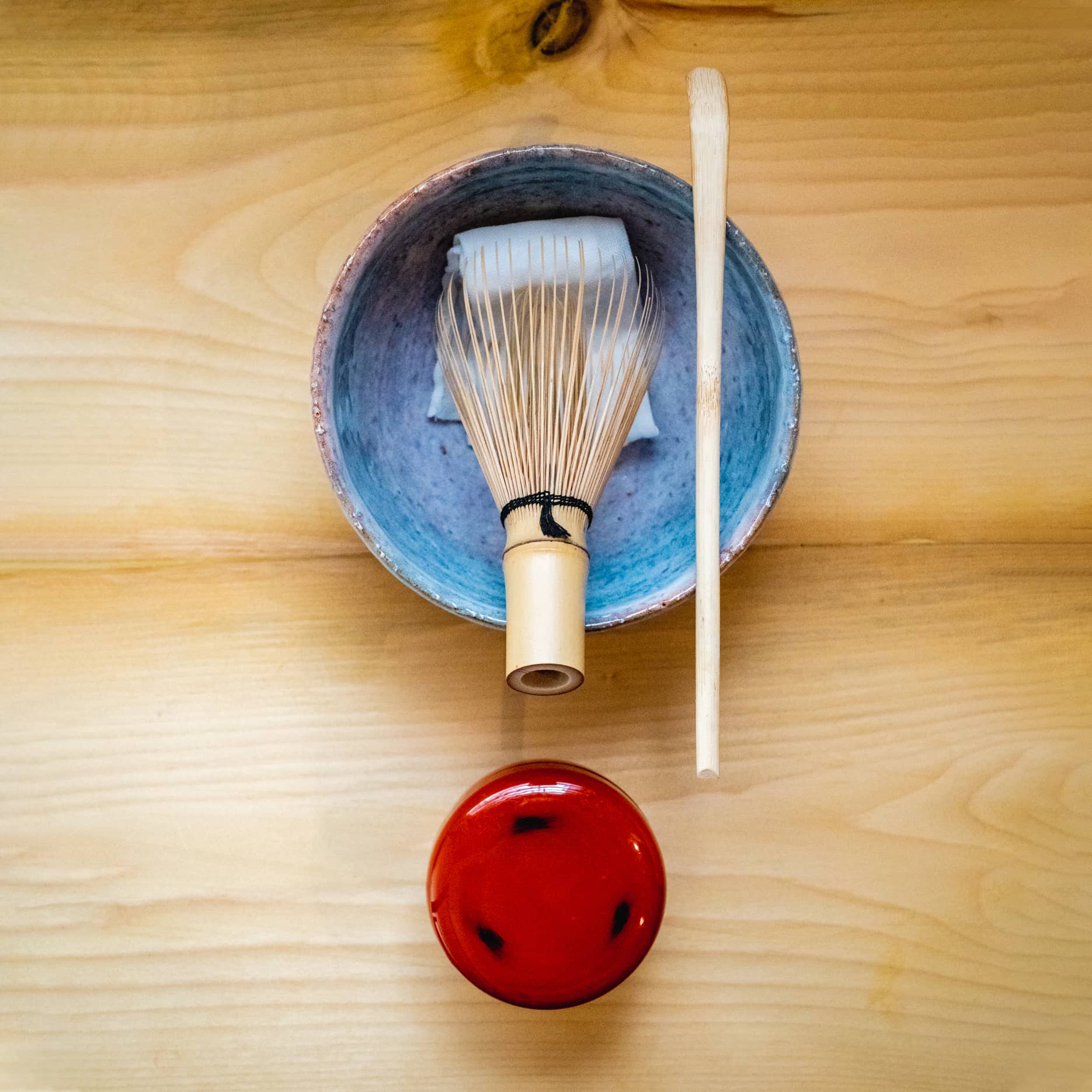Matcha Health Science: An Evidence-Based Review

As matcha’s popularity continues to rise in the West, the reports of its ‘superfood’ status and claims of its innumerable health benefits seem to grow ever wilder and more dubious. To root ourselves once more in reality and learn what the medical community actually has to say about this amazing drink, we’ve consulted avid tea enthusiast and medical professional Dr. Ben Epstein, who has kindly shared his findings for all of us to read. You can find more of his writing on his blog The Lazy Yogi.
Matcha Health Science: An Evidence-Based Review
by Benjamin Epstein, MD
A gurgling, clear stream from a boiling kettle tumbles into a vessel holding dried plant matter. A frenetic symphony of swirling H2O molecules draws out a host of larger, more complex molecules: catechins, epicatechin, gallocatechin, L-theanine, caffeine, and more. The steaming water, now steeped with a plant’s essence, is strained into a clean empty cup. For thousands of years this was the universal chemical process for the creation of tea. It is called infusion.
Black tea, oolong tea, white tea, and green tea are all brewed via an infusion process. However, there is a curious exception within the world of tea: matcha. While all other teas are extracts infused into warm water, matcha is a suspension. The powdered green tea is suspended, floating within the water, and then whisked into a thick solution with a light foamy topping.
How did this unique beverage come to be?
The story goes that a particularly brutal Japanese winter hundreds of years ago inspired farmers to cover their tea plants with straw to shield them from the damaging frost. The plants, in response to the shade created by this covering, synthesized more chlorophyll to maintain energy metabolism. The farmers then discovered that these new, darkly pigmented plants made for an even more robust and rich brew of green tea.
When a traveling monk named Eisai returned to Japan after traveling in China, he supposedly introduced a powdered suspension method for tea brewing. Combining one tea innovation with another, the result is supposedly the matcha we know today.
While there are various health benefits attributed to all kinds of teas, matcha enjoys a superior status because it is a suspension rather than an infusion. A simple online search yields a bevy of claims from preventing disease to curing cancer. But what does our most rigorous, evidence-based scientific research tell us about the true benefits of matcha?
Obesity and Metabolic Syndrome Benefits
Studies in both mice and humans have given evidence for several benefits matcha may provide regarding obesity and appropriate weight loss.
A Chinese study by Wang Et al.1 created an experiment in which they divided mice into four groups. Two groups were given either a high-fat or normal diet while another two groups were given matcha supplementation along with either a high-fat or normal diet. A number of different variables were then analyzed before and after the 8-week experiment, including blood lipid levels, blood glucose levels, liver enzymes, fat and liver cell samples viewed under a microscope, gut microbiota, fecal bile acids, and more.
When comparing the high fat diet with the high fat plus matcha diet, the study found that matcha supplementation inhibited the fat accumulation and limited the dyslipidemia and hyperglycemia caused by the high fat diet. Additionally, matcha reshaped the intestinal microbiome by promoting bacterial strains associated with healthy body weight, reducing glucose and increasing insulin levels, and reducing inflammation. There have been other well-designed studies with similar findings in humans as well.2,3
Put simply, there have been repeated experiments with findings that suggest matcha intake may benefit prevention and reversal of obesity as well as the serologic, microbiotic, and histologic markers associated with metabolic syndrome. And for those who may not be aware, metabolic syndrome significantly increases risk for heart attack, stroke, and diabetes.
Cognitive and Systemic benefits
A South Korean study examined the effect of matcha on cognitive dysfunction and systemic inflammation in mice.4 The authors stated, “Air pollution is a complex mixture of particulate matter that contains heavy metals, carbon monoxide, sulfur dioxide, polycyclic aromatic hydrocarbons, and ozone, and is known to be harmful to human health.” They further explain that the pollution “is absorbed through a variety of pathways, such as skin, nasal cavity, respiratory organs, and digestive system, and causes type 2 diabetes, respiratory infections, cardiovascular disease, and systemic inflammation.” This in turn also creates oxidative stress in the brain, leading to cognitive impairment.
Few studies have examined the way matcha may impact individuals exposed to pollution, especially with respect to the effects on cognition. The authors set out to answer these questions by designing a sophisticated experiment with mice. Essentially, they were exposed to high levels of pollution and one group received matcha extract while the other did not.
The results were extensive. To summarize: matcha inhibited cognitive dysfunction caused by the neurotoxic effects of pollution, downregulated systemic inflammation, reduced behavioral and memory dysfunction, promoted lung, skin, and brain anti-oxidation, improved regulation of mitochondrial function, and benefited several cholinergic and anticholinergic systems.
Several other studies in humans have found similarly encouraging results with respect to the impact of matcha on overall brain health.5 Some have even found results that suggest green tea may reduce the risk for developing Alzheimer’s and other forms of dementia.6
A systematic review7 of matcha’s health benefits created the following diagram to summarize:

Takeaways
Whether improving cognitive performance, protecting important organ systems, or reducing the likelihood of developing metabolic syndrome, matcha has effects on the human body that are as complex as its own storied history. The ongoing study of this traditional beverage will continue to shine light on its potential benefits.
While the evidence does suggest that matcha may benefit several conditions, there can be too much of a good thing. Drinking matcha in excess can lead to nausea, vomiting, acid reflux, and may worsen symptoms for anyone with stomach ulcers. Furthermore, there is no evidence to suggest that matcha may treat health conditions in the absence of our current medical standards of care.
My advice? A cup or two of matcha tea per day is a reliable lifestyle addition for experiencing the relaxed focus effect of combination caffeine and L-theanine. And in doing so, you can enjoy the added satisfaction of knowing you are likely benefiting your brain, metabolism, and intestinal microbiome.
Citations
- Wang Y, Yu Y, Ding L, Xu P, Zhou J. Matcha green tea targets the gut-liver axis to alleviate obesity and metabolic disorders induced by a high-fat diet. Front Nutr. 2022 Aug 1;9:931060. doi: 10.3389/fnut.2022.931060. PMID: 35978960; PMCID: PMC9376390.
- Paradee Auvichayapat, Montira Prapochanung, Oratai Tunkamnerdthai, Bung-orn Sripanidkulchai, Narong Auvichayapat, Bandit Thinkhamrop, Soontorn Kunhasura, Srisuda Wongpratoom, Supat Sinawat, Pranithi Hongprapas, Effectiveness of green tea on weight reduction in obese Thais: A randomized, controlled trial, Physiology & Behavior, Volume 93, Issue 3, 2008, Pages 486-491, ISSN 0031-9384
- El-Elimat T, Qasem WM, Al-Sawalha NA, AbuAlSamen MM, Munaiem RT, Al-Qiam R, Al Sharie AH. A Prospective Non-Randomized Open-Label Comparative Study of The Effects of Matcha Tea on Overweight and Obese Individuals: A Pilot Observational Study. Plant Foods Hum Nutr. 2022 Sep;77(3):447-454. doi: 10.1007/s11130-022-00998-9. Epub 2022 Aug 3. PMID: 35921023; PMCID: PMC9362463.
- Kim JM, Kang JY, Park SK, Moon JH, Kim MJ, Lee HL, Jeong HR, Kim JC, Heo HJ. Powdered Green Tea (Matcha) Attenuates the Cognitive Dysfunction via the Regulation of Systemic Inflammation in Chronic PM2.5-Exposed BALB/c Mice. Antioxidants (Basel). 2021 Nov 30;10(12):1932. doi: 10.3390/antiox10121932. PMID: 34943034; PMCID: PMC8750520.
- Anas Sohail A, Ortiz F, Varghese T, Fabara SP, Batth AS, Sandesara DP, Sabir A, Khurana M, Datta S, Patel UK. The Cognitive-Enhancing Outcomes of Caffeine and L-theanine: A Systematic Review. Cureus. 2021 Dec 30;13(12):e20828. doi: 10.7759/cureus.20828. PMID: 35111479; PMCID: PMC8794723.
- Kakutani S, Watanabe H, Murayama N. Green Tea Intake and Risks for Dementia, Alzheimer's Disease, Mild Cognitive Impairment, and Cognitive Impairment: A Systematic Review. Nutrients. 2019 May 24;11(5):1165. doi: 10.3390/nu11051165. PMID: 31137655; PMCID: PMC6567241.
- Kochman J, Jakubczyk K, Antoniewicz J, Mruk H, Janda K. Health Benefits and Chemical Composition of Matcha Green Tea: A Review. Molecules. 2020 Dec 27;26(1):85. doi: 10.3390/molecules26010085. PMID: 33375458; PMCID: PMC7796401.

Matcha











